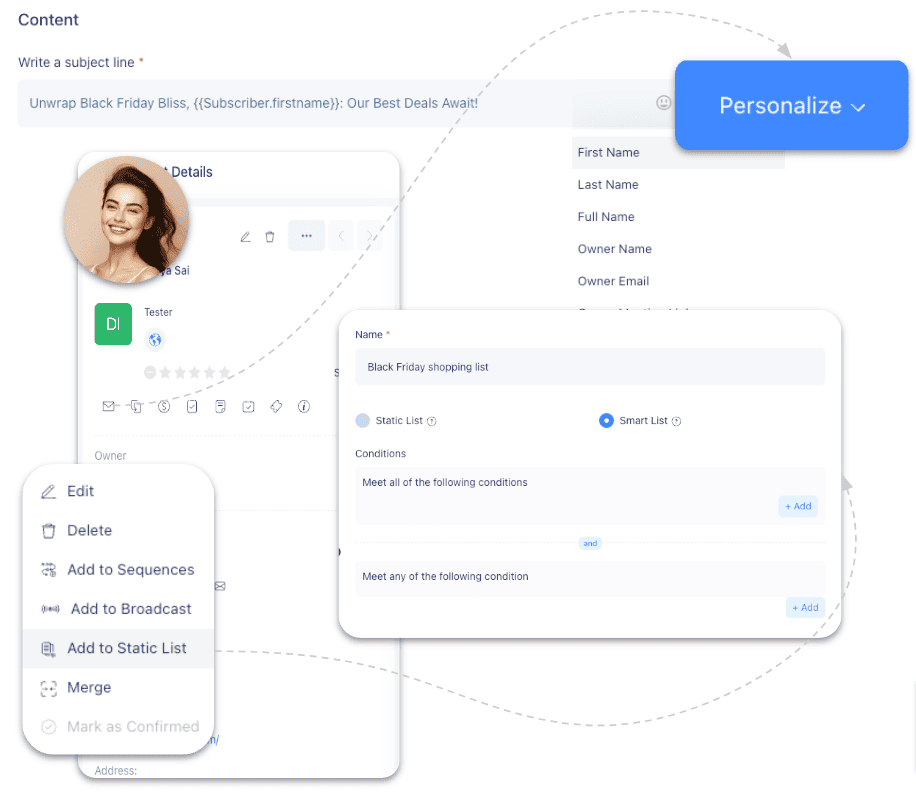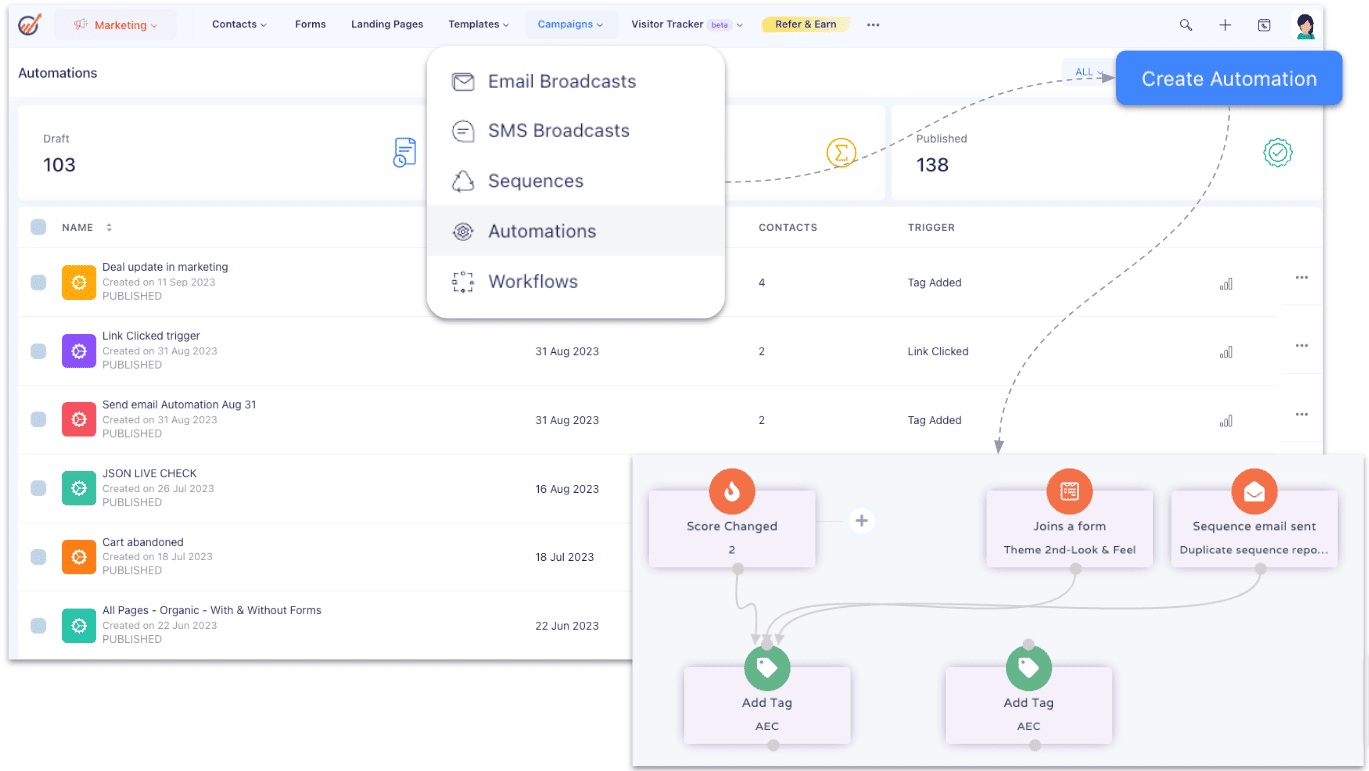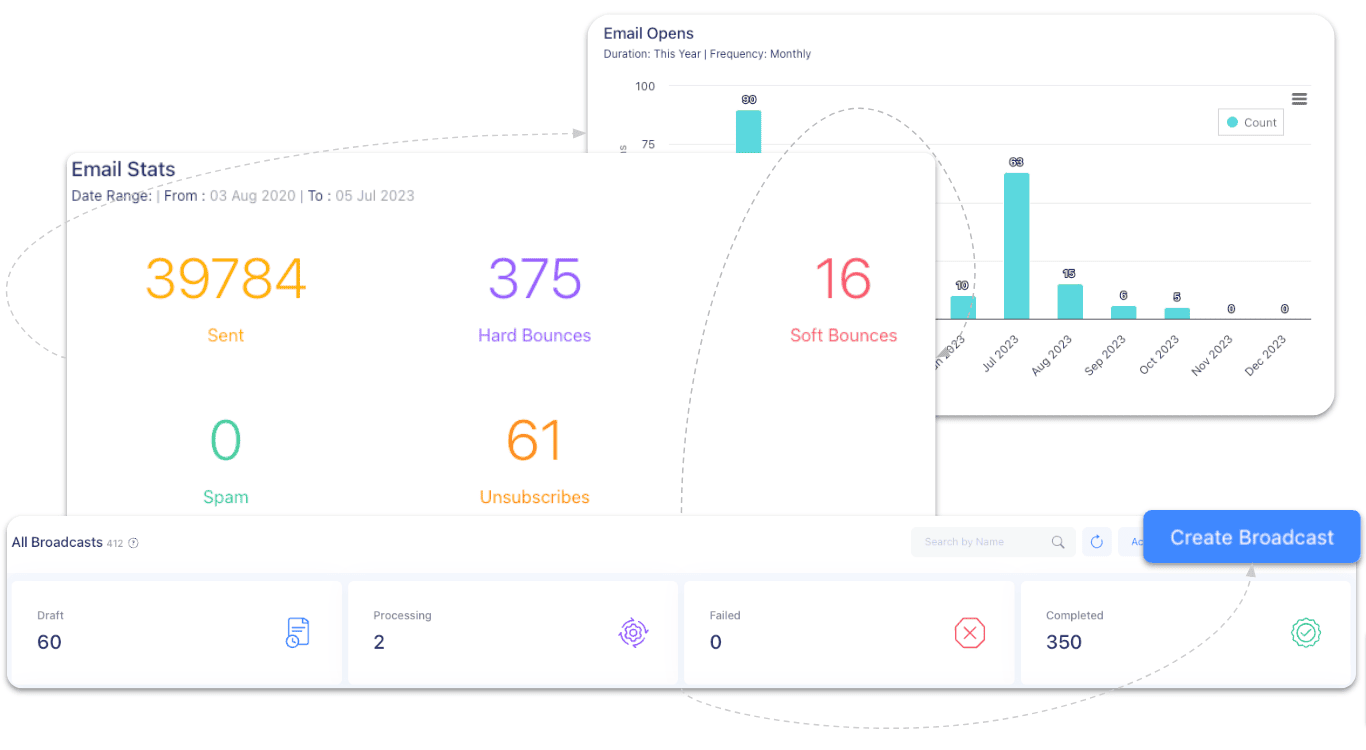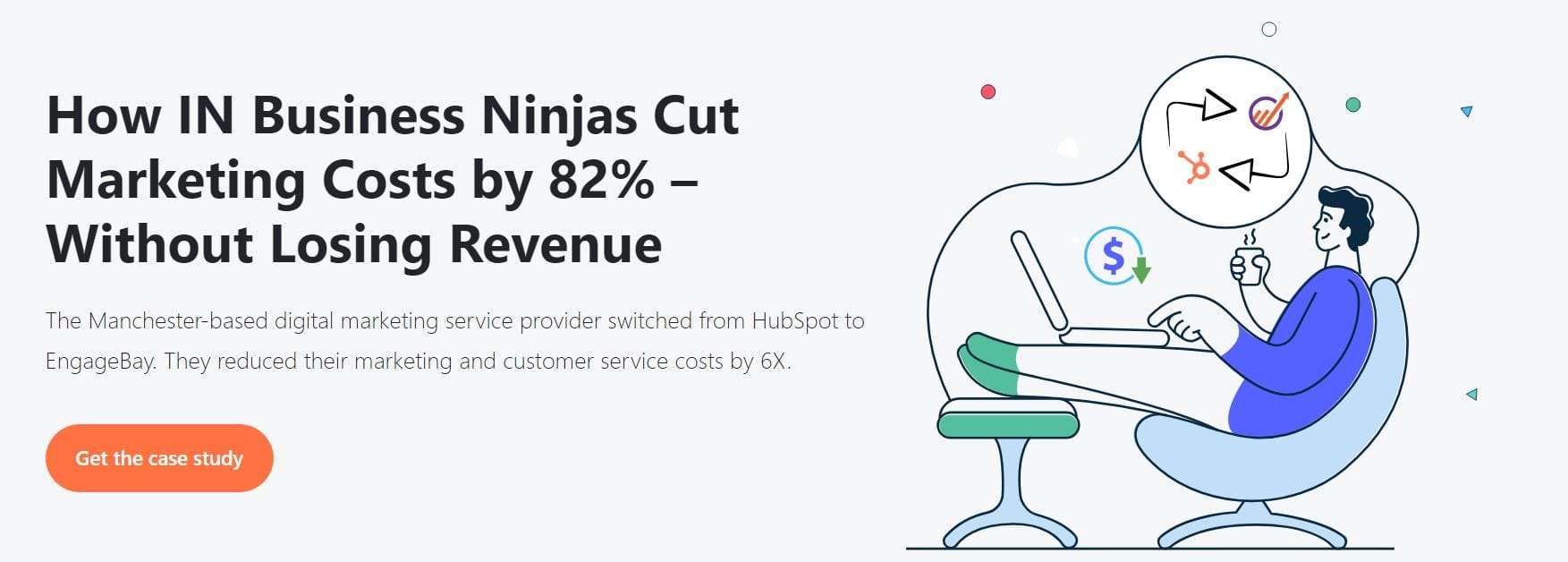Reseller marketing is one of the most important ways to get products to existing customers and reach new ones. Through a network of wholesalers, distributors, and affiliates, this model lets non-manufacturers trade goods — meaning manufacturers can reach more people than through direct sales.
It’s not just about getting more products onto the market: Reseller marketing can make products much more visible and accessible, creating a win-win situation for producers and distributors.
To succeed in this complicated field, you must understand how markets work, build strong relationships, and use targeted marketing strategies.
In this blog post, we’ll show nine useful reseller marketing strategies to help you outwit your competition and increase revenue.
Table of Contents
9 Proven Reseller Marketing Strategies to Try Today
Let’s get started!
1. Understand the reseller market
Understanding the reseller market is crucial for success. This market is a critical component of the global supply chain and acts as an intermediary between manufacturers and end consumers.
What is a reseller?
A reseller is an individual or a company that purchases goods from producers or distributors and resells them. This business strategy is vital to the distribution chain and many industries. Resellers make products more accessible to varied markets and often offer customer support and product customization.
Reseller types
- Affiliate: Resellers market products to their audience and receive a commission for each sale. They market without inventory.
- Distributors: Distributors sell to smaller distributors and retailers after making big purchases. They bundle products and offer logistical support.
- Wholesalers: Those who buy in bulk and sell to retailers, including distributors. They prioritize volume sales over distributor services.
- Retailers: They purchase goods from distributors or wholesalers and resell them to customers. They complete the reseller chain.
Current conditions and trends
Technology, customer behavior, and economic changes shape the reseller industry. Notable trends include:
- eCommerce growth: Online platforms allow resellers to reach worldwide audiences.
- Dropshipping: This strategy lets resellers sell products straight from suppliers to customers without inventories.
- Value-added reselling: Resellers emphasize customized solutions, specialist services, and complete client support.
- Sustainability focus: Resellers adopt eco-friendly products and practices to meet consumer demand.
2. Build a strong reseller network
Focusing on building a solid network that works well with others is the first step toward a thriving relationship ecosystem.
Partnering with the right resellers
Choosing the right resellers is important for the success of any reseller program. The criteria for selecting appropriate partners should be thorough and strategic.
Firstly, ensuring the reseller’s market aligns well with your product’s target audience is necessary. This alignment guarantees that your products reach the intended customers effectively.
Additionally, evaluating the reputation and trustworthiness of a reseller is significant. This includes assessing their business practices and financial stability, indicating their reliability and long-term viability as partners.
Another critical factor is the reseller’s capability in marketing and selling your products. Their skills and resources in these areas will directly impact the success of your products in the market.
Lastly, ensuring that their business methods and values align with yours is essential. This alignment helps maintain a consistent brand message and ethical business practices.
Building mutually beneficial relationships
Once the right resellers are identified, the next step is building strong, mutually beneficial relationships.
Clear and transparent communication is the foundation of these relationships. Regular updates, feedback sessions, and open forums for discussion are necessary to keep both parties informed and aligned.
Providing resellers with extensive training and ongoing support empowers them to sell your products effectively. This includes product knowledge and insights into the best sales practices and market trends. Creating fair and motivating pricing strategies is also essential.
These strategies should be profitable for you and the resellers, including bulk discounts or special pricing for top-performing resellers.
Collaboration in marketing efforts, such as co-branding or shared marketing resources, can significantly enhance the effectiveness of the sales efforts.
Finally, conducting regular performance reviews and offering constructive feedback are essential for continuous improvement. These reviews help identify key areas and foster growth and achievement.
Read also: 12 SaaS Reseller Programs You Can’t Ignore
3. Develop a competitive reseller program
Competitive reseller programs have multiple pillars.
- Attractive prices: Create pricing strategies that ensure reseller profitability and your margins. Volume discounts, sales target-based pricing, and promotional pricing work.
- Rewards and incentives: Motivate retailers with incentives. This could include performance-based bonuses, sales targets, or regional product exclusivity.
- Complete assistance: Provide extensive sales training, marketing materials, and technical support. A reseller support team can boost program efficacy.
Flexible terms: Keep your reseller agreement fair and aware of the reseller’s strengths and limitations. Flexibility fosters long-term partnerships.
Designing an attractive reseller program
You need to know what resellers value to have a good reseller program. To find out what retailers want and need, you need to do a lot of market study.
In this step, you’ll learn about their goals, obstacles, and preferred partner types.
Financial incentives
It is essential to offer appealing cash incentives. This includes earnings margins, bonuses for good work, and other rewards. Direct rewards can significantly impact a reseller’s choice to work with your brand.
Stronger connection
Having exclusive access to a product or area might be appealing for reasons other than money. These benefits can make dealers feel unique and important, which is important for keeping them as customers for a long time.
Communication is a must
The rewards of your program need to be made clear. Explain what makes your program better than others and how it varies. Being open about how the program is growing can also help you get good dealers.
Feedback shows that you care
Feedback and keeping track of success must be done regularly. This approach helps improve the program and shows that you care about the success of the resellers, which builds loyalty and long-term relationships.
Making your reseller program appealing
Creating an appealing reseller program requires a planned approach that meets potential partners’ needs.
First, learn what resellers want. Market research can reveal their preferences, helping you design your program to match their needs.
After understanding their needs, carefully describe your program’s benefits. This requires explaining your program’s advantages over competitors to get resellers to work with you.
Designing attractive programs takes time. It needs constant evaluation and development.
Regularly assessing your program’s efficacy and being flexible based on reseller feedback and market developments is significant. This adaptive strategy keeps your program relevant and desirable to resellers, creating a dynamic and mutually beneficial connection.
Read also: The Future of Dropshipping: Emerging Trends & Expert Predictions for the Next Decade
4. Enhance effective communication and improve training
The core of any successful reseller program is effective communication and thorough training. These factors are necessary to keep resellers informed, skilled, and connected to the company’s goals and plans.
Open communication requires regular updates.
These updates should include new product features, marketing strategies, market trends, and corporate news. Resellers can alter their plans and sales approaches thanks to this ongoing flow of information.
Implementing feedback mechanisms is significant. These technologies let resellers voice issues, offer insights, and recommend improvements. Responding to this feedback improves the program and shows resellers that their opinion is appreciated, creating partnership and collaboration.
Reseller training workshops and webinars are practical. These sessions should address product details, USPs, sales strategies, and market analysis. The purpose is to teach resellers how to market and sell products.
Resellers can access marketing materials, training materials, product information, and more through an online portal. A gateway like this saves resellers time and effort by making material and information acquisition easier.
CRM systems improve communication and reseller management. These systems track communications, sales, and other indicators to help resellers understand their performance and needs.
Regular meetings and conferences help. These events develop reseller communities and give training and information. They provide networking opportunities, a sense of belonging, and inspiration.
Read also: 7 Profitable Dropshipping Niches for 2024: Emerging Trends and Opportunities
5. Implement digital marketing for a successful reseller program
Leveraging online marketing strategies is significant for the success of any reseller program.
These strategies not only enhance the reach of your products but also empower resellers to market and sell in the digital landscape effectively.
Reseller program digital marketing strategies
- SEO for resellers: One of the key strategies is educating resellers on Search Engine Optimization (SEO) best practices. By understanding how to optimize their online content, resellers can significantly improve the online visibility of products. This includes using relevant keywords, having a good website structure, and creating quality content that resonates with their audience. Furthermore, outsourced link building services allow resellers to focus on sales while professionals handle backlink acquisition and SEO authority.
- Email marketing: Another useful tool is email marketing. Resellers can be inspired by regular updates, marketing tips, and success stories. These emails can help resellers learn about new goods, marketing methods, and industry trends.
- Social media marketing: It is also important to encourage resellers to promote products on social media platforms. Shareable information like product photos, infographics, and promotional videos can boost their social media marketing. This promotes your goods and builds brand loyalty.

Digital tools for reseller support and empowerment
- Analytics tools: Giving resellers analytical tools can revolutionize their marketing. They can track marketing campaign performance and make data-driven decisions with these tools. Understanding consumer behavior and preferences helps resellers improve their tactics.
- Customer Relationship Management: A Customer Relationship Management (CRM) system can be invaluable for resellers. It helps them maintain up-to-date and consistent product information across their digital platforms. A CRM software simplifies updating product details, prices, and descriptions to ensure accuracy and brand consistency.
- Automated marketing technologies: Automated marketing technologies can boost reseller efficiency. These technologies help generate leads, segment customers, and personalize marketing campaigns. Marketing automation saves time and improves targeting.

Omnichannel client experiences
Consumers today demand omnichannel product research and purchase. Improving channel coordination is crucial to meeting reseller model demands.
Omnichannel marketing integrates physical and digital interactions into a single customer journey.
Resellers should support in-store, eCommerce, mobile, and other purchases. Customers may investigate things online before trying them in-store. They may look in-store but buy online later.
Complete, precise product inventory and pricing transparency across channels are crucial. It avoids dissatisfaction from unavailable products or uneven offers. CRM and centralized inventory management technologies ensure consistency and collaboration.
The consumer journey continues after purchase. Post-purchase support across channels fosters loyalty. Easy self-service returns for in-store and online purchases are valuable. Resellers can use social media for omnichannel client support.
Read also: 17 Affiliate Marketing Programs For Bloggers in 2024
6. Motivate resellers through rewards and incentives
Reward and incentive programs are pivotal in maintaining reseller interest and motivation.
These programs encourage resellers to prioritize their products and strive for increased sales. Implementing various incentive models, each with its unique appeal, can significantly enhance the effectiveness of these programs.
Financial rewards like bonuses, commissions, and better sales margins motivate resellers. These tangible incentives provide concrete benefits for meeting sales targets. Discounted pricing also spurs reseller action by increasing potential profit. Special deals foster a sense of value and partnership exclusivity.
Effective incentive programs set clear objectives, understand reseller preferences, and communicate transparently. Goals could involve increasing sales, promoting certain products, or expanding into new markets. Tailoring to diverse reseller business models requires insight into what motivates them. Ensure program details and expectations are conveyed so resellers can fully utilize the benefits.
Regular feedback to resellers on their performance is important. It helps them identify areas for improvement and understand how they can maximize their incentives.
Read also: 6 Incredible Dropshipping Success Stories
7. Ensure brand consistency and compliance
Ensuring brand consistency across various reseller channels is significant for maintaining your brand’s integrity and providing a uniform customer experience. This consistency should extend to product information, marketing materials, and the brand’s overall messaging.
Ensuring resellers adhere to your brand guidelines is critical to maintaining this consistency.
Regular training sessions can help retailers understand their brand values and how to communicate them effectively. Providing resellers with standardized marketing materials and a comprehensive brand guideline document can also aid in maintaining consistency.
Managing reseller networks through periodic reviews can ensure branding guidelines are followed.
Implementing feedback channels where stakeholders can report inconsistencies enables quickly addressing deviations. Additionally, resellers consistently following brand standards could be rewarded, incentivizing compliance.
Read also: Affiliate Marketing: A Complete Guide for SaaS Businesses
8. Analyze data thoroughly
Data and analytics are important in the reseller market. Tracking inventory, revenue, marketing campaign success, and more helps organizations find opportunities and enhance operations.
A solid analytics and business intelligence solution should be prioritized. This shows KPIs (key performance indicators) across the enterprise and partner network in real-time. Track sales volumes, customer acquisition expenses, repeat purchases, inventory turnover, and reseller ROI.
Advanced analytics, including predictive modeling, what-if simulations, and client segmentation, provide deeper insights. For instance, predictive modeling can estimate sales situations to plan inventory. A customer segmentation study can identify your most valuable customers for marketing.
Building a strong reseller network culture is important.
Resellers get metrics transparency with user-friendly analytics dashboards. Each reseller can make better, metric-based decisions. Their input can help improve your business plan collaboratively.
How to collect and use feedback
Gathering and acting on feedback is critical to refining and enhancing a reseller program.
It’s necessary to understand the experiences and opinions of your resellers, as this information can guide improvements and adjustments to the program. Here are some practical ways to collect and utilize feedback:
- Frequent surveys: Regular surveys are an effective way to gather comprehensive feedback from resellers. These surveys can cover various aspects of the program, such as the effectiveness of support provided, the appeal of incentives, and the ease of selling your products. The key is to ask targeted questions that yield actionable insights.
- Direct communication: Facilitating open and direct communication channels between your company and the resellers is significant. This can be achieved through regular meetings, dedicated communication platforms, or natural contact points. Encouraging resellers to share their experiences and suggestions openly can provide valuable qualitative feedback.
- Acting on input: Once feedback is collected, it’s crucial to analyze and work on it. Making changes to the program based on this feedback demonstrates to resellers that their opinions are valued and considered. This could involve adjusting incentive structures, improving support mechanisms, or modifying marketing materials.

9. Craft case studies and success stories
Several success stories in reseller marketing show how well-thought-out tactics can work in various fields. Check out this example from Modern Marketing Partners.
Success stories showcase how thoughtful tactics succeed across industries. Here’s another example: Brittenford Systems, a prominent IT reseller in Washington, DC, engaged Modern Marketing Partners (MMP) to expand its market reach. By overhauling Brittenford’s digital marketing, MMP helped drive improved performance.
They revamped Brittenford’s website with new SEO features and a mobile-friendly version. MMP also rejuvenated the company’s blog and social profiles, integrating social sharing tools and link-building strategies. Furthermore, MMP supported launching new products like Brittenford Staffing, CIO Advisory services, and PositivePay, a check fraud prevention application.
These efforts improved search engine rankings for competitive keywords and the successful introduction of new services, with growing sales leads efficiently managed in a robust CRM system.
The following is our case study depicting the affordability of EngageBay:

Analysis
The case study illustrates the transformative power of a well-executed digital marketing strategy.
By focusing on SEO, content marketing, and social media optimization, MMP significantly enhanced Brittenford’s online visibility and market position. Introducing new, relevant services aligned with market needs further propelled the company’s growth.
This approach improved Brittenford’s search rankings and established a solid foundation for continuous lead generation and customer engagement, proving the efficacy of integrated digital marketing in the IT reseller sector.
To understand and target the right groups of potential customers, you need to set clear goals and use tactics based on data.
Improving the customer experience by making the website more accessible and easier for them to pay can significantly increase conversion rates. Additionally, upselling and cross-selling to current customers may be a more cost-effective way to make more money than getting new ones.
Conclusion
Reseller marketing offers unique product distribution and market expansion opportunities.
This blog post emphasizes building solid partnerships and using digital marketing to succeed. A successful reseller network requires organized incentive programs and brand consistency.
Industry case studies show that goal-oriented, data-driven tactics work, and market adaptation is significant. Reseller marketing strategies must adapt to new trends to develop strong alliances and sustain business growth.
EngageBay is an all-in-one marketing, sales, and customer support software for small businesses, startups, and solopreneurs. With EngageBay, you get email marketing, landing pages, free email templates, A/B testing, personalization, and more.
Sign up with EngageBay for free, or book a demo with our experts.
Note: We also have an enticing reseller program. If you are interested, please take a look.
Frequently Asked Questions (FAQ)
1. How can small companies compete with bigger companies in reseller marketing?
Small businesses can compete with larger competitors in reseller marketing by using agility and individualized customer service.
Small firms can adjust faster to market changes and offer more customized services than large ones. They should target specific markets with specialized knowledge and products. Small businesses can also benefit from personal client interactions and excellent after-sales service.
Strategic social media efforts and SEO may level the playing field in visibility and reach.
2. Can B2B reseller marketing work?
Reseller marketing works well in the B2B industry.
It’s necessary for B2B sales. B2B resellers can add value by offering industry expertise and customized solutions, including installation, training, and maintenance. Build solid partnerships with resellers who understand the demands and difficulties of their sector’s businesses.
B2B reseller marketing can be improved by providing product training, marketing support, and competitive incentives.
3. Can reseller marketing take advantage of rapid market changes?
Market trends change quickly, so reseller marketing must be flexible.
To achieve agility, keep up with changing client wants and preferences through market research and reseller communication. Promote reseller input and insights from the ground. Using real-time analytics can also aid in making quick decisions.
Resellers need training and resources to adapt to digital marketing trends like social media and content marketing.
4. Does technology improve reseller marketing?
Improved reseller marketing relies on technology.
Reseller networks can increase communication, training, and performance tracking via digital platforms and solutions. CRM systems improve reseller connections, while analytics solutions reveal industry trends and campaign performance.
eCommerce platforms like Shopify and CMS help resellers manage online sales and marketing. Digital marketing techniques like SEO and social media help reach and engage more people.
5. How can reseller marketing be sustainable?
Sustainability in reseller marketing means using eco-friendly items and fostering sustainable company practices. Partnering with sustainable manufacturers can start this. It’s important to have a robust partner program with ample brand awareness.
Also important is educating resellers about sustainability and how it might attract environmentally aware clients. Digital marketing also eliminates the demand for tangible marketing materials, cutting carbon emissions.
6. How do entrepreneurs use marketing strategies to grow product sales?
Entrepreneurs use several marketing tactics to demonstrate product value.
Customer desires are revealed by target market research, enabling product and marketing growth. Your brand needs a strong personality, a unique logo, and consistent colors for this technique to work. SEO, social media, and email marketing help entrepreneurs grow online.
